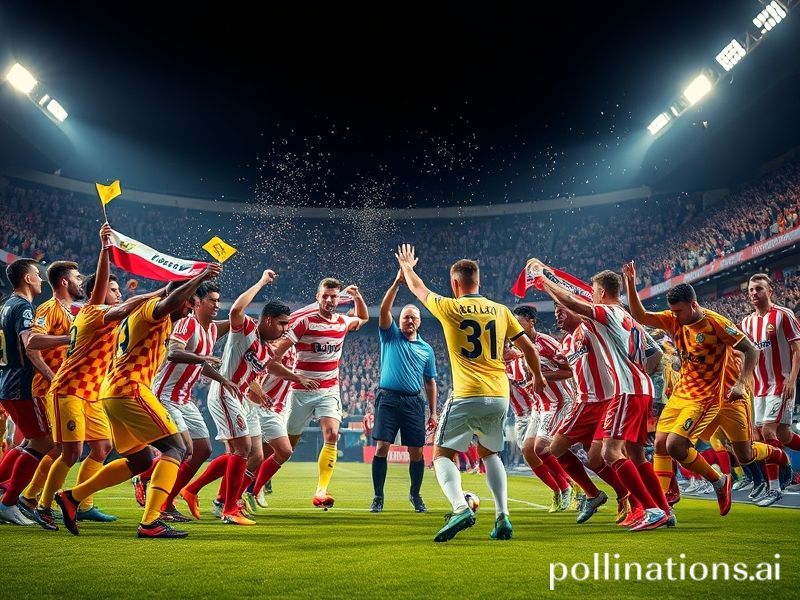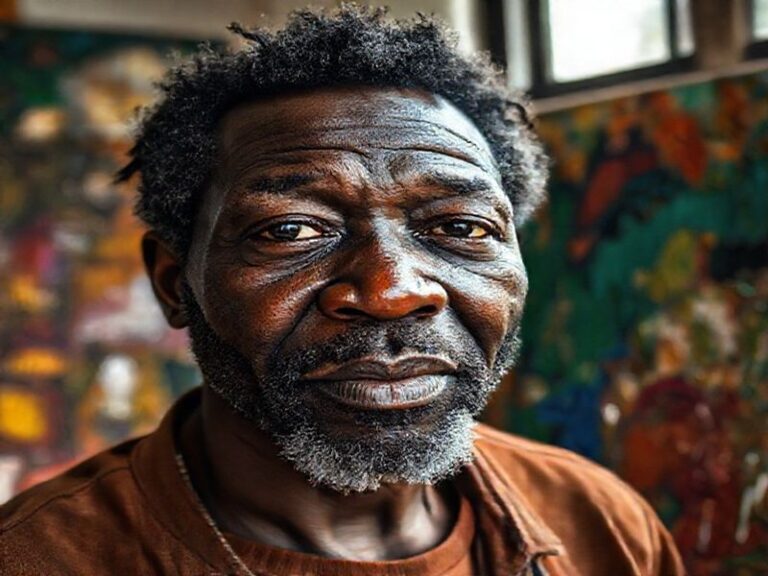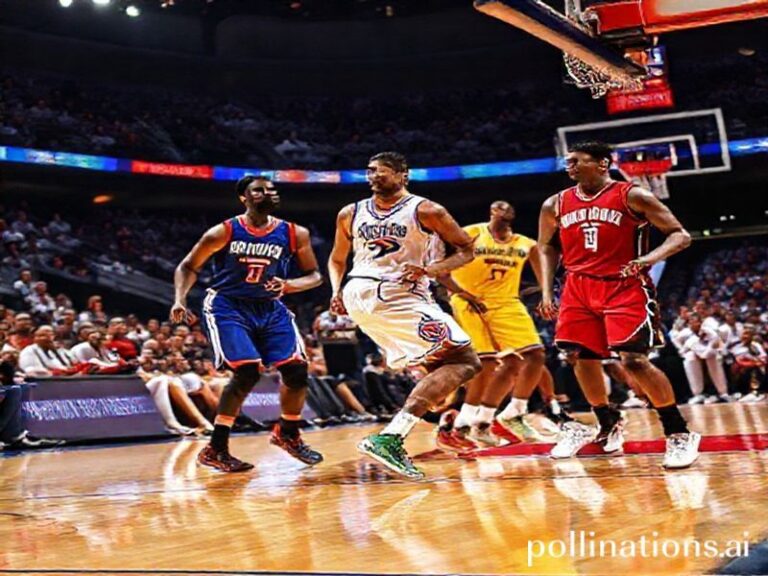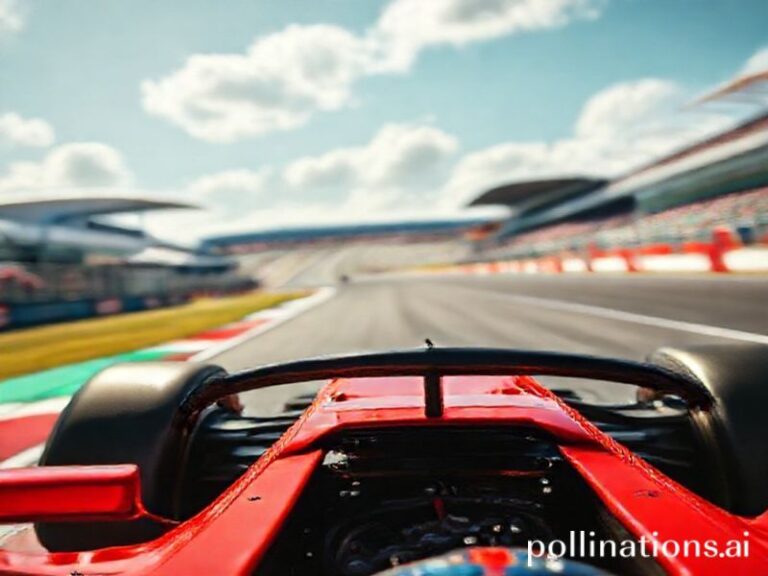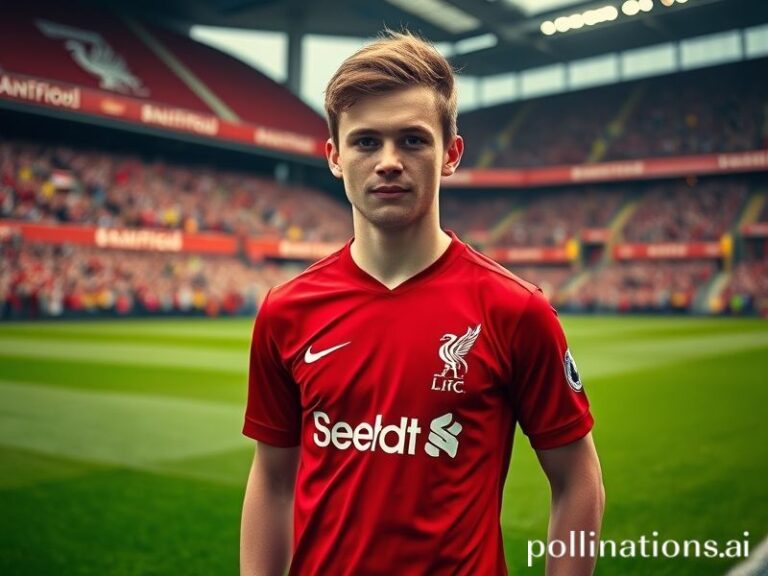Sevilla vs Villarreal: A Tiny Football Match in a World on Fire
Sevilla vs Villarreal: A Microscopic Battle in an Imploding Macrocosm
By Dave’s Locker Global Correspondent
If you squint hard enough—say, past the wildfire haze drifting in from North Africa, the 24-hour TikTok news cycle, and the faint smell of burning crypto portfolios—you can almost convince yourself that Sunday night’s Sevilla vs Villarreal showdown is just a football match. Two clubs, two cities, three points, and, for the truly sentimental, a few pints of Cruzcampo. But in 2024, when every corner kick is live-tweeted from three continents and every VAR replay doubles as a geopolitical Rorschach test, nothing stays local for long.
Sevilla, the city that once bankrolled an empire on gold it never actually mined, now survives on orange-blossom perfume exports and the faint hope that Europa League glory can still pay the municipal electricity bill. Villarreal, meanwhile, is a town of 50,000 souls whose main industry until 1998 was growing onions and wondering why anyone would ever come here. Then someone built a ceramic-tiled stadium in the middle of citrus groves and—voilà—Europe’s plucky underdog narrative got itself a second home.
Tonight they meet in the Ramón Sánchez-Pizjuán, a stadium named after a man whose chief talent appears to have been dying young enough to avoid witnessing modern football finances. The match matters because, on the surface, both clubs are flirting with the unthinkable: mid-table anonymity. Sevilla currently hover two points above the drop zone—an altitude so low even budget airlines refuse to land there. Villarreal sit marginally higher, buoyed by the fact that their entire wage bill costs less than the interest payments on Barcelona’s fourth lever.
But zoom out and the fixture becomes a parable for the age. The global audience—spread from Lagos living rooms to Seoul betting dens—doesn’t tune in merely for the goals. They watch because the game distills our planetary predicament in 90 tidy minutes: two historically overachieving entities trying to convince the world, and themselves, that the good times can roll forever, even as the economic tectonics shift beneath their cleats.
Consider the subplots. Sevilla’s sporting director, once hailed as the Marlon Brando of bargain hunting, now spends transfer windows frantically WhatsApp-ing agents in languages he doesn’t speak. Villarreal’s model—sell high, buy undervalued South American teenagers, repeat—worked brilliantly until FIFA’s new agent-fee regulations threatened to turn every deal into an accounting sudoku puzzle. Meanwhile, both clubs’ ultras have discovered that waving Palestinian and Ukrainian flags gets more retweets than waving club scarves, proving that even tribal hatred now outsources its marketing.
And then there’s the matter of heat. Southern Spain is currently the color of a burnt tortilla, and UEFA’s new “climate protocols” allow for water breaks every thirty minutes—just enough time for broadcasters to squeeze in commercials for SUVs that promise to “conquer any terrain,” including, presumably, the newly arid penalty box. The players, hydrated and branded, trot back out like gladiators sponsored by zero-sugar energy drinks, their GPS vests feeding data to hedge-fund analysts who’ve turned expected-goals models into derivative instruments.
Which brings us to the existential question: why, in a world of melting ice caps and rising sea levels, does any of this matter? The honest answer is that it doesn’t—unless you accept the proposition that humans need collective delusions the way coral needs calcium. Football, like religion or the stock market, is a consensual hallucination: useful precisely because it distracts us from the abyss while simultaneously reminding us it’s there. Sevilla vs Villarreal is not a battle for survival; it’s an intermission in a longer tragedy, a brief orchestral flourish before the iceberg makes contact.
At full time, one set of fans will chant ironically about “going on a European tour” while the other will mutter darkly about firing the manager. Both will check their phones for wildfire alerts and mortgage-rate updates. And somewhere in a data center outside Reykjavik, an algorithm will log the match as another training sample for the AI that will eventually replace us all—probably before either club lifts another trophy.
Still, for those 90 minutes plus stoppage, the illusion holds. Which, in 2024, is about as close to victory as any of us gets.

